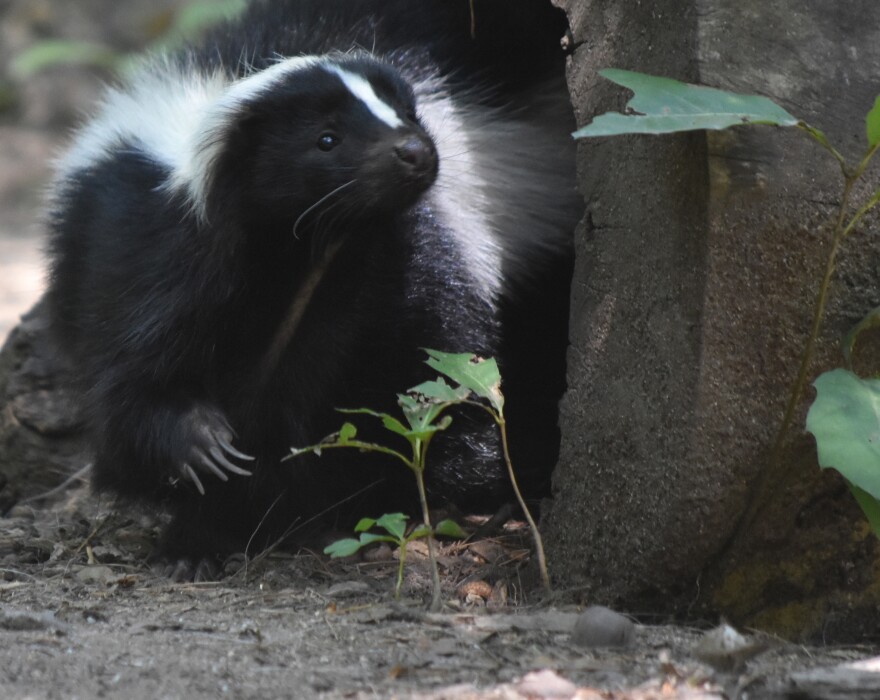A pet skunk who died of rabies may have exposed Upper Peninsula residents to the fatal disease.
Marquette veterinarian Tim Hunt says the animal, named Dixie, was purchased from a licensed breeder in Lapeer County. An Escanaba couple bought the skunk and had it spayed at Hunt’s clinic. It later became sick and died. A postmortem test was positive for rabies.
Hunt says because skunks are unusual pets, the couple took it out in public and let people take photos with it.
“The belief is that the skunk came with the rabies at that point and was asymptomatic. The question is whether or not it’s transmissible at that point. Once it becomes symptomatic, it absolutely is transmissible.”
Rabies can be transmitted from animals to humans through saliva to a bite or scratch on the skin. If the animal is salivating, if could even spread from its whiskers through a wound or cut.
Hunt says the breeder apparently rehabilitated wild skunks alongside domesticated animals, which is illegal. Those skunks were then sold across the state.
“So potentially, you know, there’s skunks all over the place that people have bought that could have the same issue that what we saw with the skunk in Escanaba.”
Rabies is fatal, so identifying when a person might have been exposed to the disease is the key. Hunt says if you think you may have been exposed during the month of November, contact your physician or local health department.
Those who are concerned about their pets should contact their vet.
An outbreak of rabies in pet skunks has also been reported in the Metro Detroit area.

